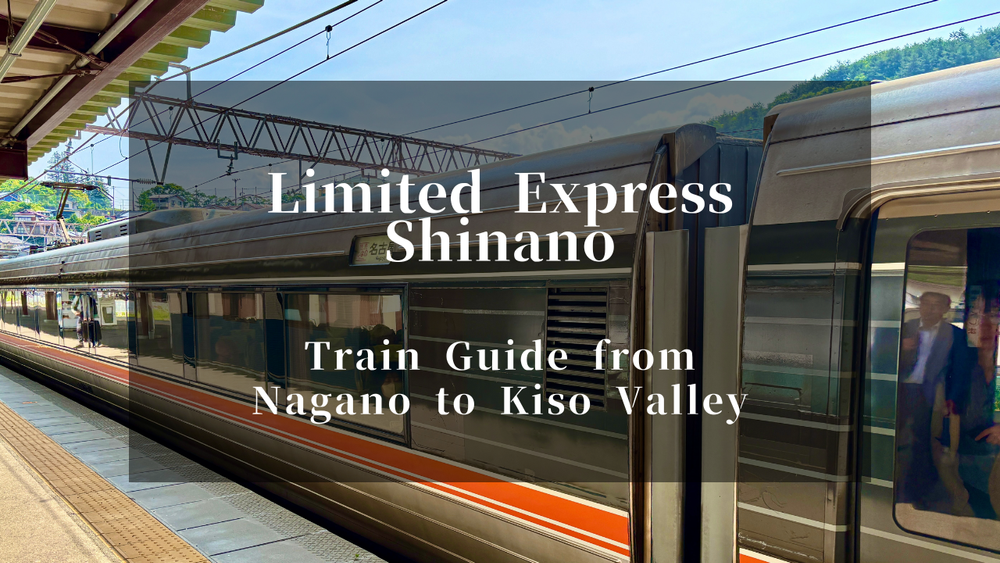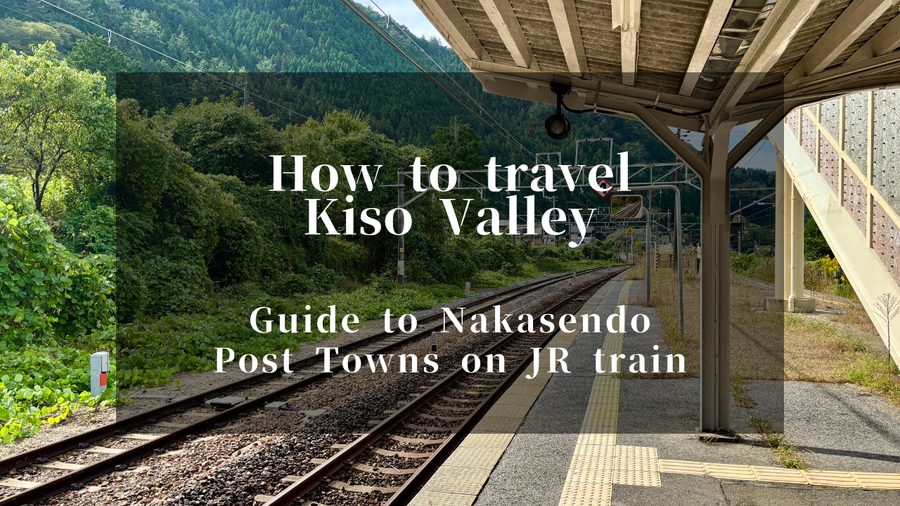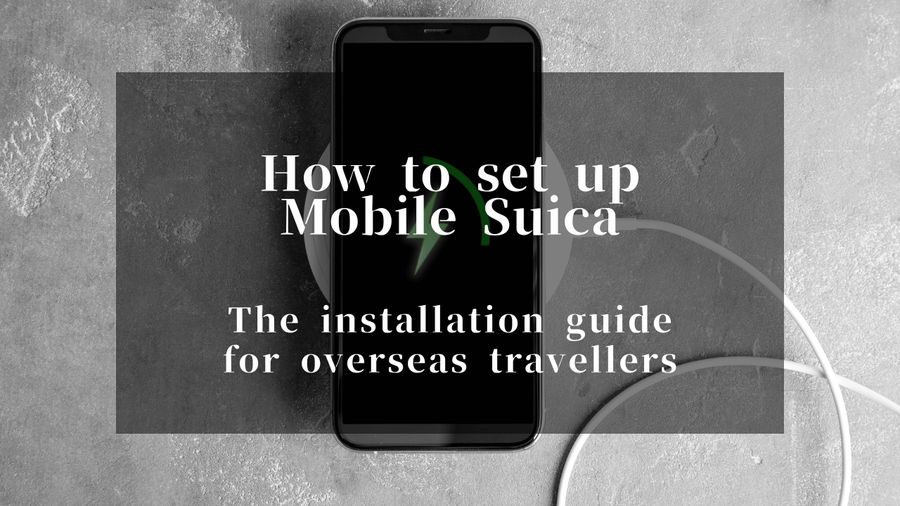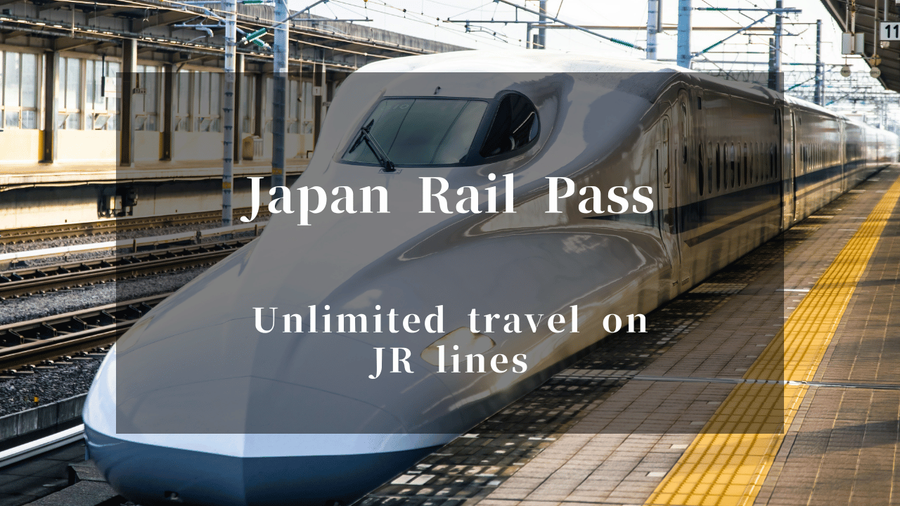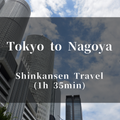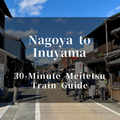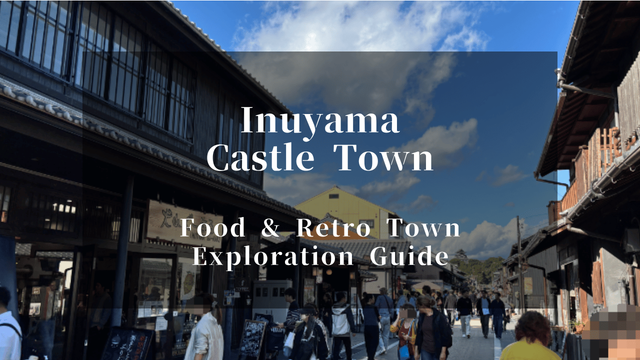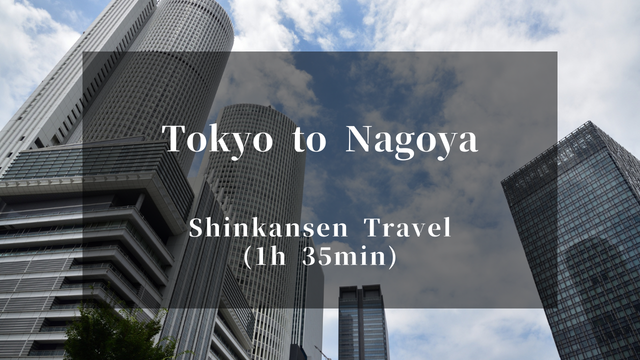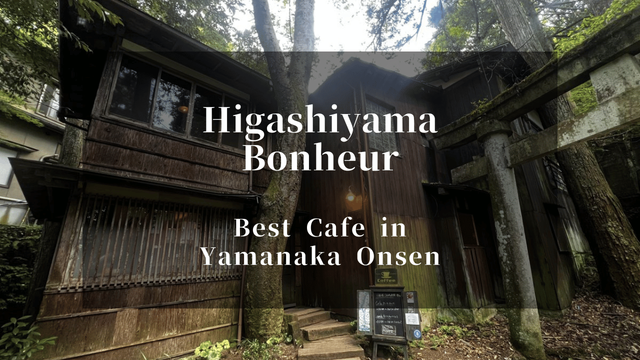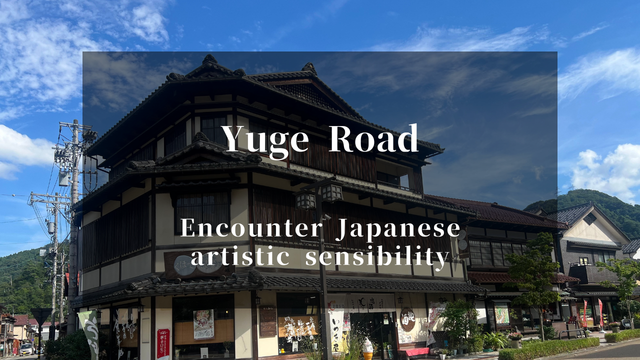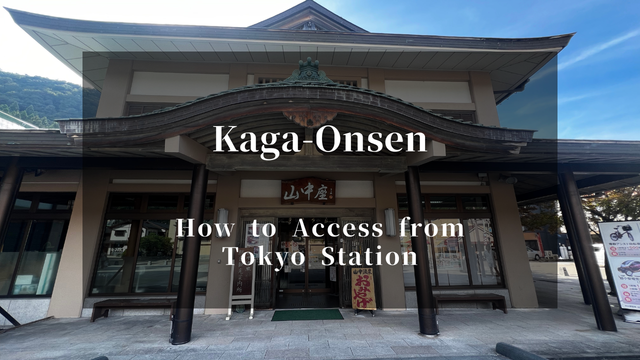The Limited Express Shinano connects Nagano Station and Nagoya Station in about 3 hours. It's the essential train for visiting Kiso Valley and the historic post towns along the Nakasendo Trail.
Fastest Route from Tokyo to Kiso Valley
Take the Hokuriku Shinkansen from Tokyo Station to Nagano Station (about 1 hour 30 minutes), then change to the Limited Express Shinano to Kiso-Fukushima Station (about 1 hour 20 minutes). Total journey time is about 3 hours to reach the centre of Kiso Valley. You can also access from Nagoya in roughly the same time (about 3 hours 10 minutes).
For detailed routes from Tokyo, see this article:
This article explains everything foreign travellers need to know: how to buy tickets, choose seats, and board the Limited Express Shinano.
For more information about Kiso Valley for international visitors:
Basic Information About Limited Express Shinano
Here are the key points you need to know about using the Limited Express Shinano.
Route Map (Nagano to Nagoya)
The Limited Express Shinano stops at the following main stations between Nagano and Nagoya. However, not all trains stop at every station. Particularly important: Nagiso Station (for Tsumago-juku) is only served by some trains, so you must check when booking.
Nagano - Shinonoi - Hijiri-Kogen - Akashina - Matsumoto - Shiojiri - Kiso-Fukushima - Agematsu - Nagiso - Nakatsugawa - Ena - Tajimi - Chikusa - Kanayama Nagoya
Journey Times (Limited Express Shinano)
Nagano → Kiso-Fukushima: 1 hour and 20 min
Nagano → Nakatsugawa:2 hours and 10 min
Nagoya → Kisofukushima:1 hour and 20 min
Nagoya → Nakatsugawa:50 min
Trains Run Once Per Hour
The Limited Express Shinano runs about once per hour. Since services are infrequent, missing a train means waiting an hour for the next one. Plan your schedule with plenty of time.
The timetable below shows Kiso-Fukushima Station as an example. Red times show "Limited Express Shinano" departures, black shows local train departures. Local trains shown in light blue boxes are one-man trains (no conductor).
For efficient travel, use the Limited Express Shinano between major stations, then switch to local trains for stations where the express doesn't stop. For information on using local trains in Kiso Valley:
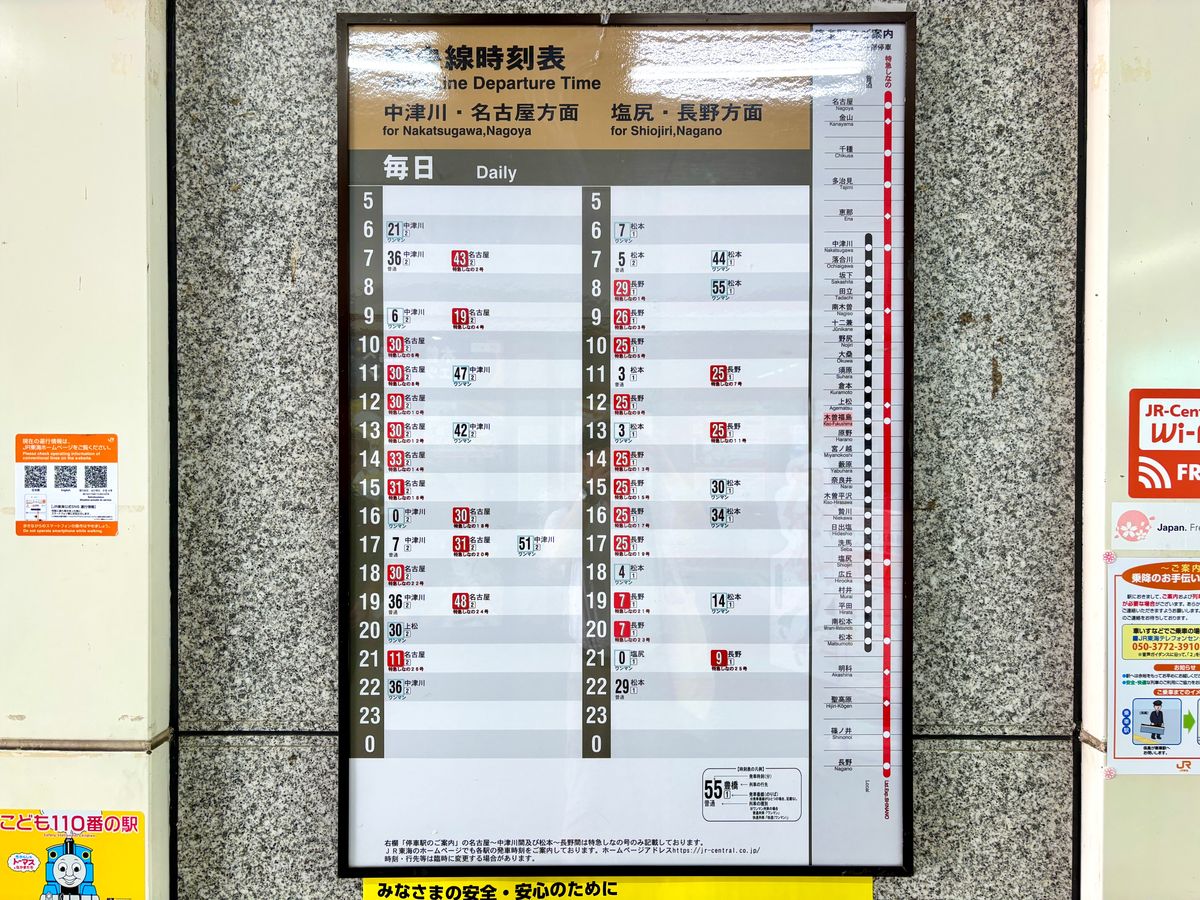
Suica Doesn't Work at Most Stations - Paper Tickets Required
At most stations in Kiso Valley, you cannot use Suica or other IC cards. Whilst IC cards work at large stations like Nagoya, Nagano, and Matsumoto, they generally don't work between Shiojiri and Nakatsugawa Stations.
Therefore, except for JR Pass holders, you must buy paper tickets (2 tickets: base fare ticket and limited express ticket) in advance. It's also important to carry cash, as many places in the Kiso Valley area require cash payment, and many shops near stations don't accept credit cards.
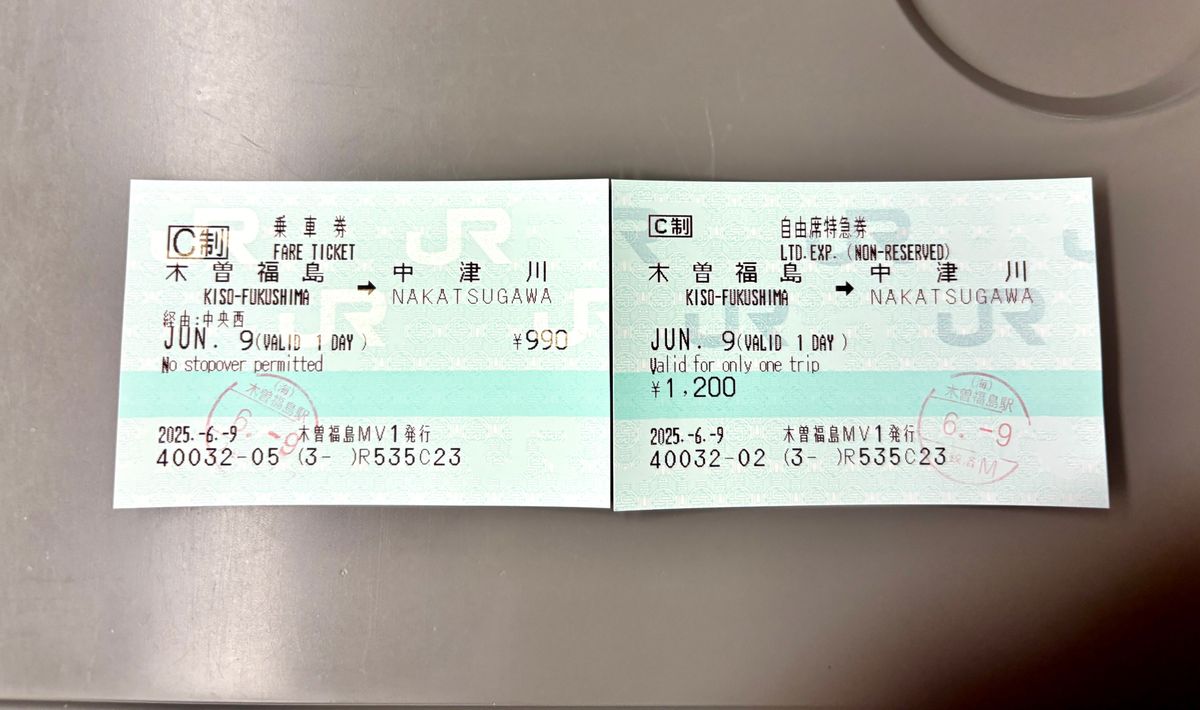
Japan Rail Pass Holders: Non-Reserved Seats Don't Need Tickets
The JR Pass (Japan Rail Pass) is a special rail pass that lets foreign travellers use JR lines throughout Japan for a fixed price. JR Pass holders don't need to buy separate tickets for non-reserved seats, as the base fare and limited express fee are included.
However, even with a JR Pass, if you want a reserved seat, you need to get a seat reservation ticket (free of charge) from a ticket machine or ticket office.
For more about the JR Pass:
How to Buy Limited Express Shinano Tickets
There are two main ways to buy tickets: using ticket machines at stations or booking online. However, we don't recommend online booking for foreign tourists for these reasons:
Different booking websites let you collect tickets at different stations, so you might not be able to get your ticket at your departure station
Some online booking systems only accept credit cards issued in Japan
Here, we'll show you the most reliable method: buying at ticket machines. Of course, you can also buy tickets in advance at staffed ticket offices (Midori-no-Madoguchi).
How to Buy Tickets at Ticket Machines
You can buy Limited Express Shinano tickets at green "Reserved Seat Ticket Machines" at JR stations. They have English menus, so they're easy to use if you follow the steps.
Step 1: Find the Ticket Machine
Look for green machines marked "Reserved Seat Ticket Machine" near the ticket gates. These are different from regular ticket machines - they're special machines for buying limited express and shinkansen tickets.
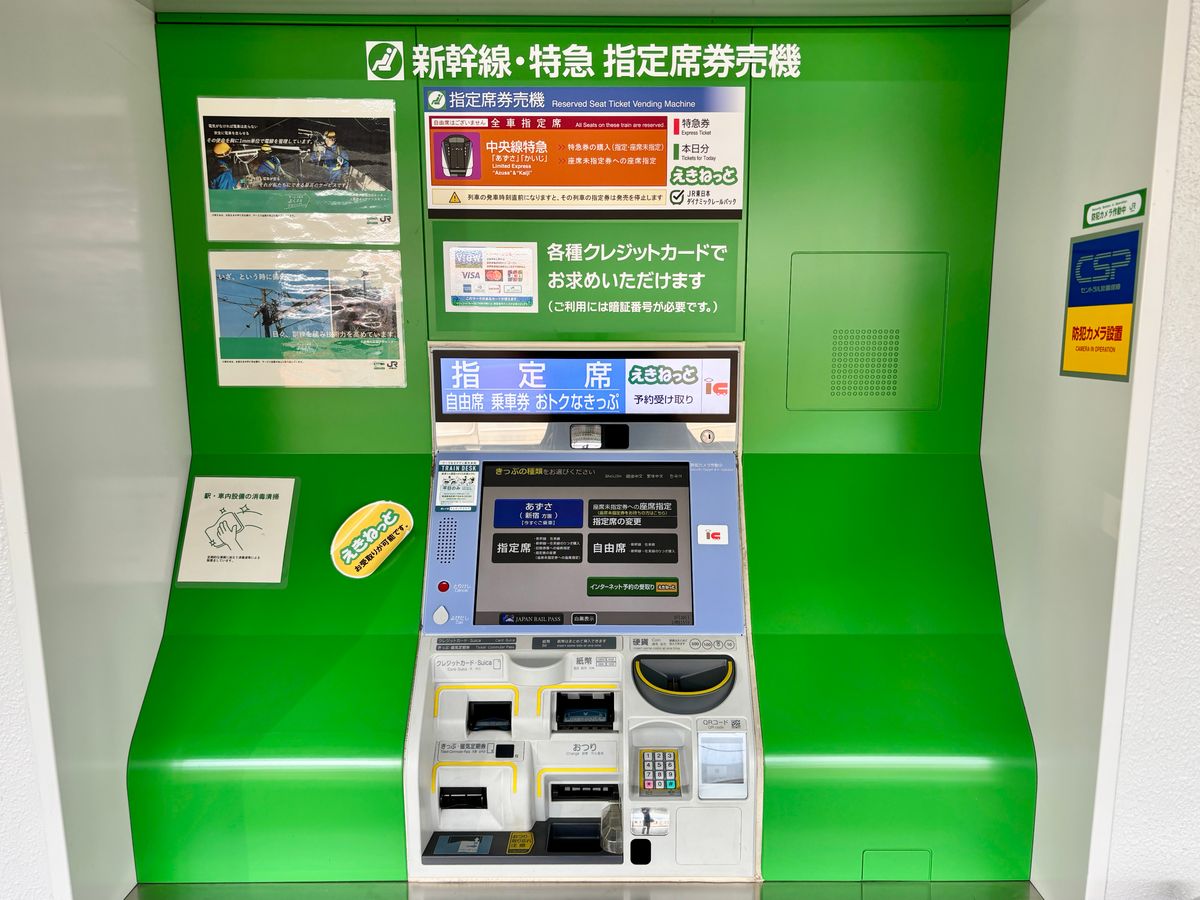
Step 2: Go to the Express Train Screen
After switching the display language to English, press the button shown in the red box in the photo below. This takes you to the screen for booking shinkansen and limited express trains.
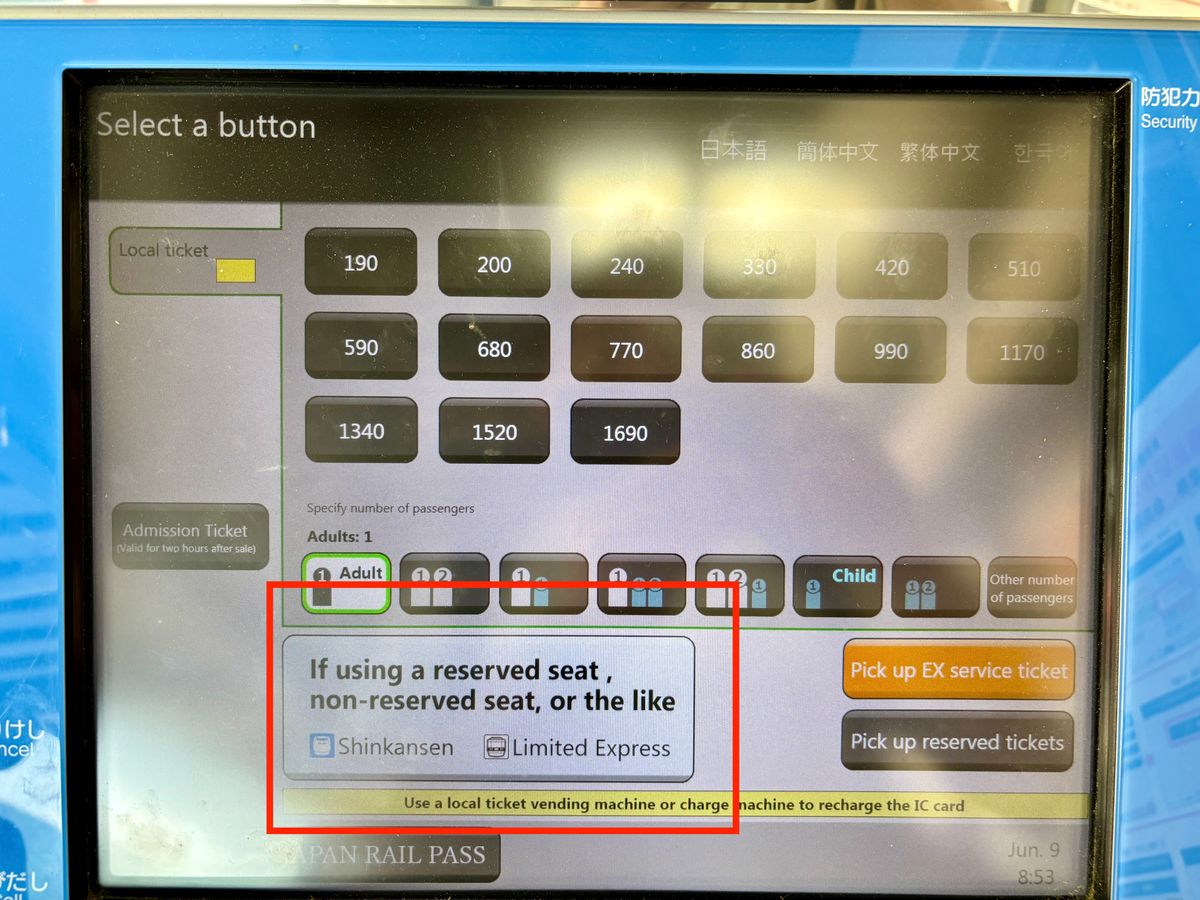
Step 3: Choose Your Ticket Type
Choose from these options. We strongly recommend reserved seats for weekends and holidays. Non-reserved seats are fine for weekdays.
Reserved Seat: Your seat is guaranteed (recommended for weekends/holidays)
Non-Reserved Seat: No seat assignment - sit in any available seat
The price difference is about 500-850 yen. Considering the risk of standing during busy times, reserved seats are worth it.
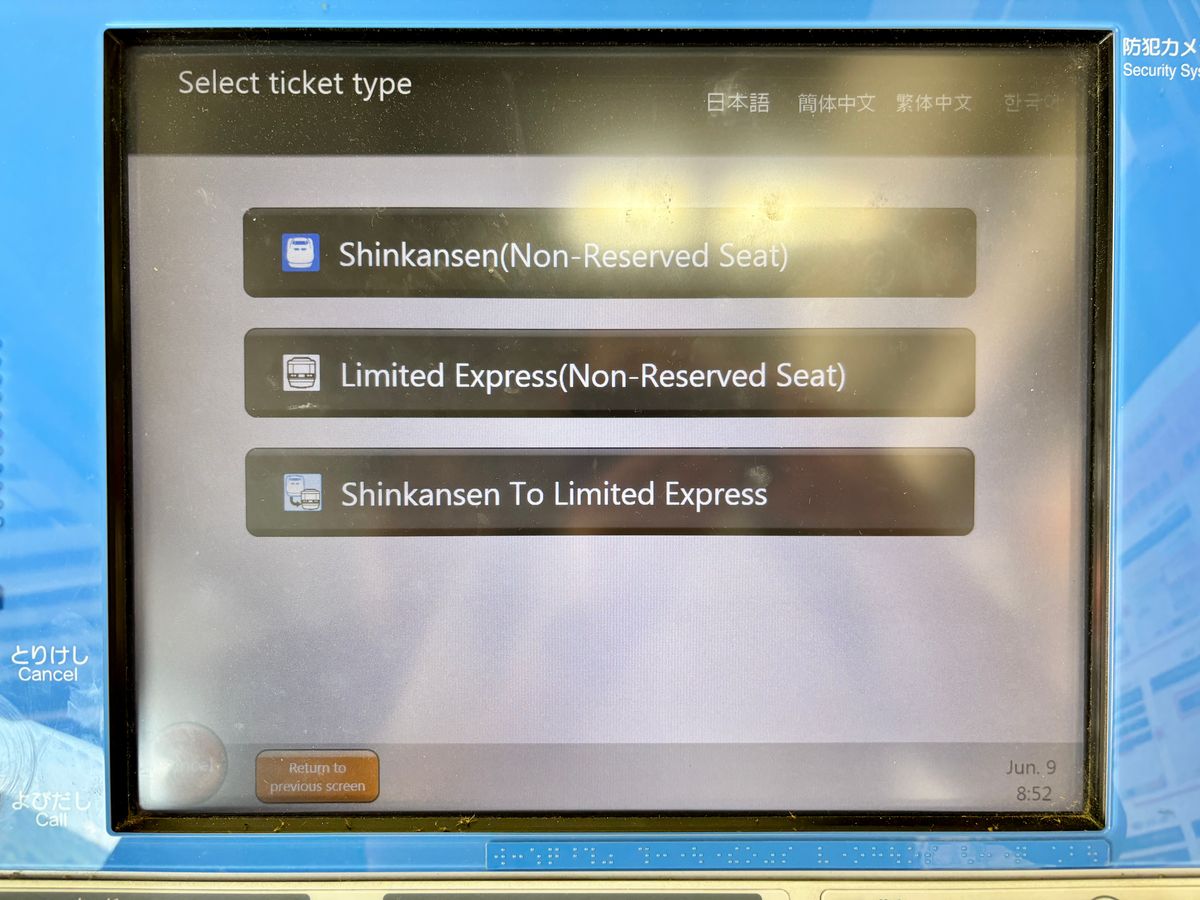
Step 4: Enter Departure and Arrival Stations
Select your departure station (e.g., Nagano, Kiso-Fukushima) and arrival station (e.g., Nagoya, Kiso-Fukushima).
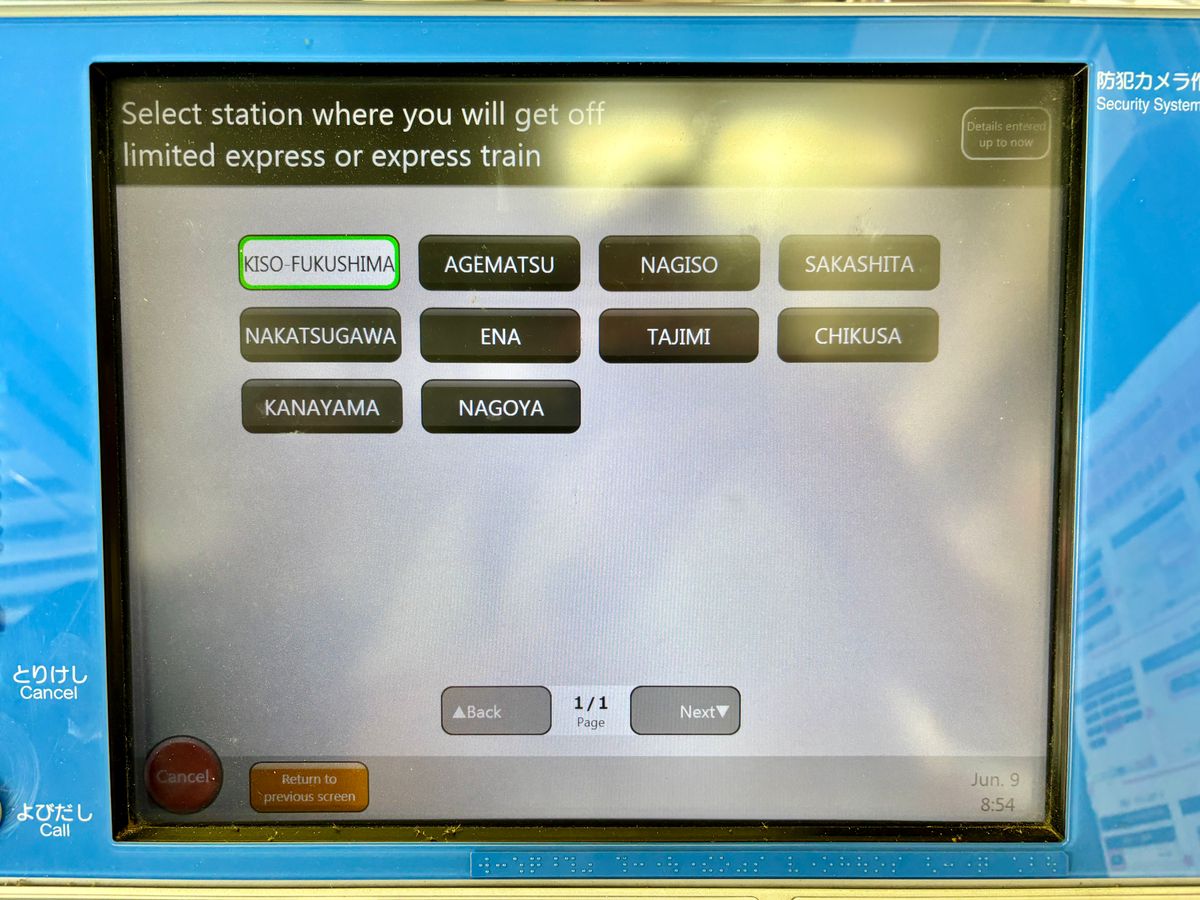
Step 5: Choose Date and Time
Select your travel date and approximate departure time. The machine shows available trains around your chosen time. Even for non-reserved seats, you need to select a date - the ticket is valid only on that day.
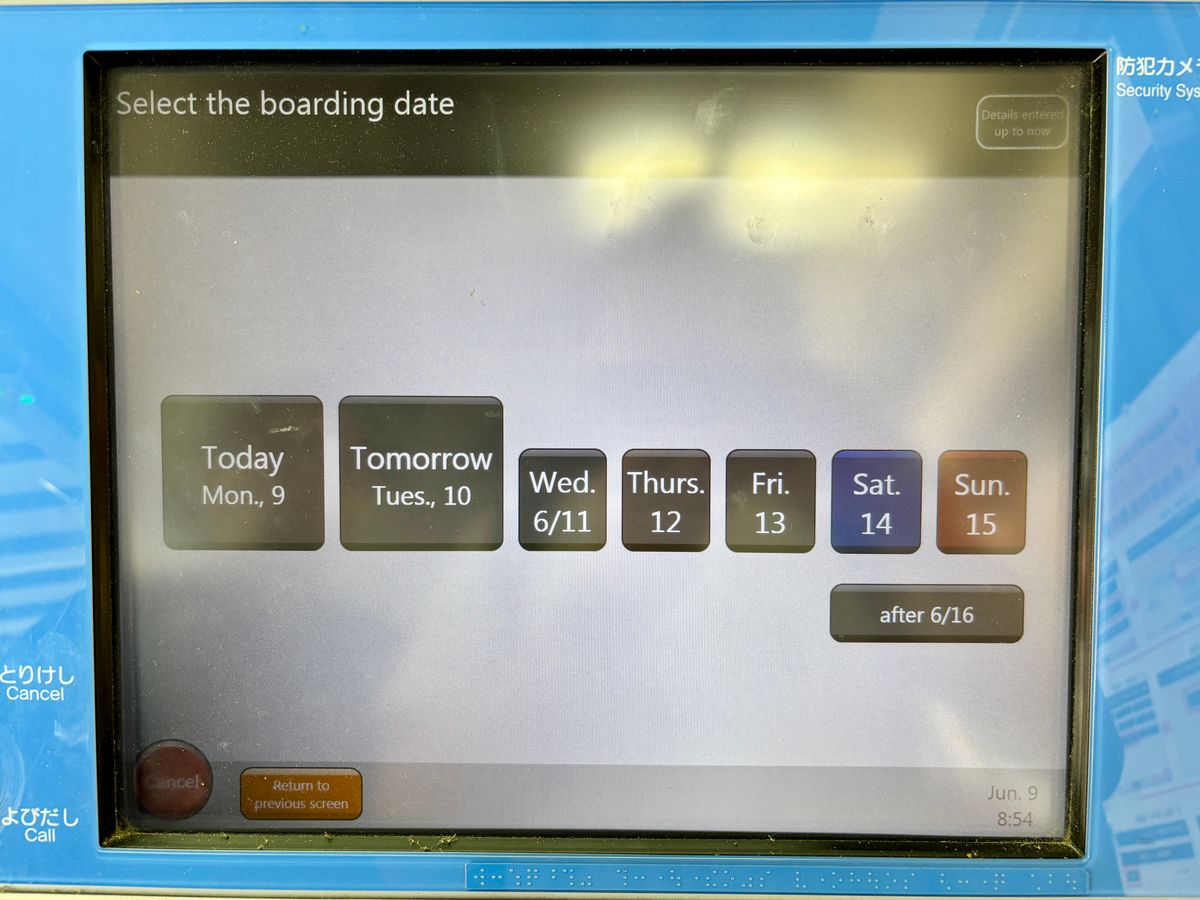
Step 6: Buy the Base Fare Ticket Too
Choose whether to buy a base fare ticket along with your limited express ticket. Since most stations except major ones like Nagano don't accept Suica, you'll need a paper base fare ticket. We recommend buying both together.
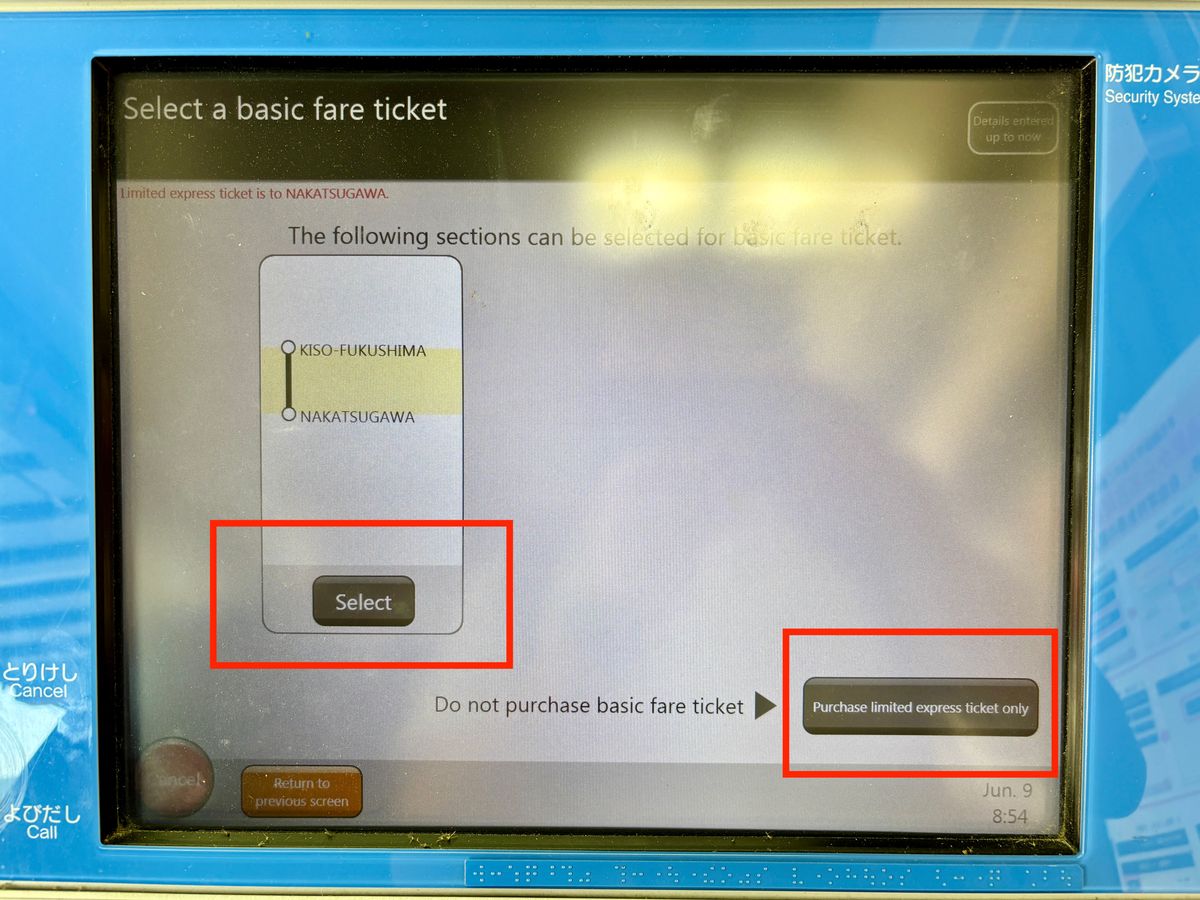
Step 7: Payment
Pay with cash, credit card, or IC card (Suica/Pasmo).
Cash: Accepts 1,000, 5,000, and 10,000 yen notes
Credit Card: Works at most machines
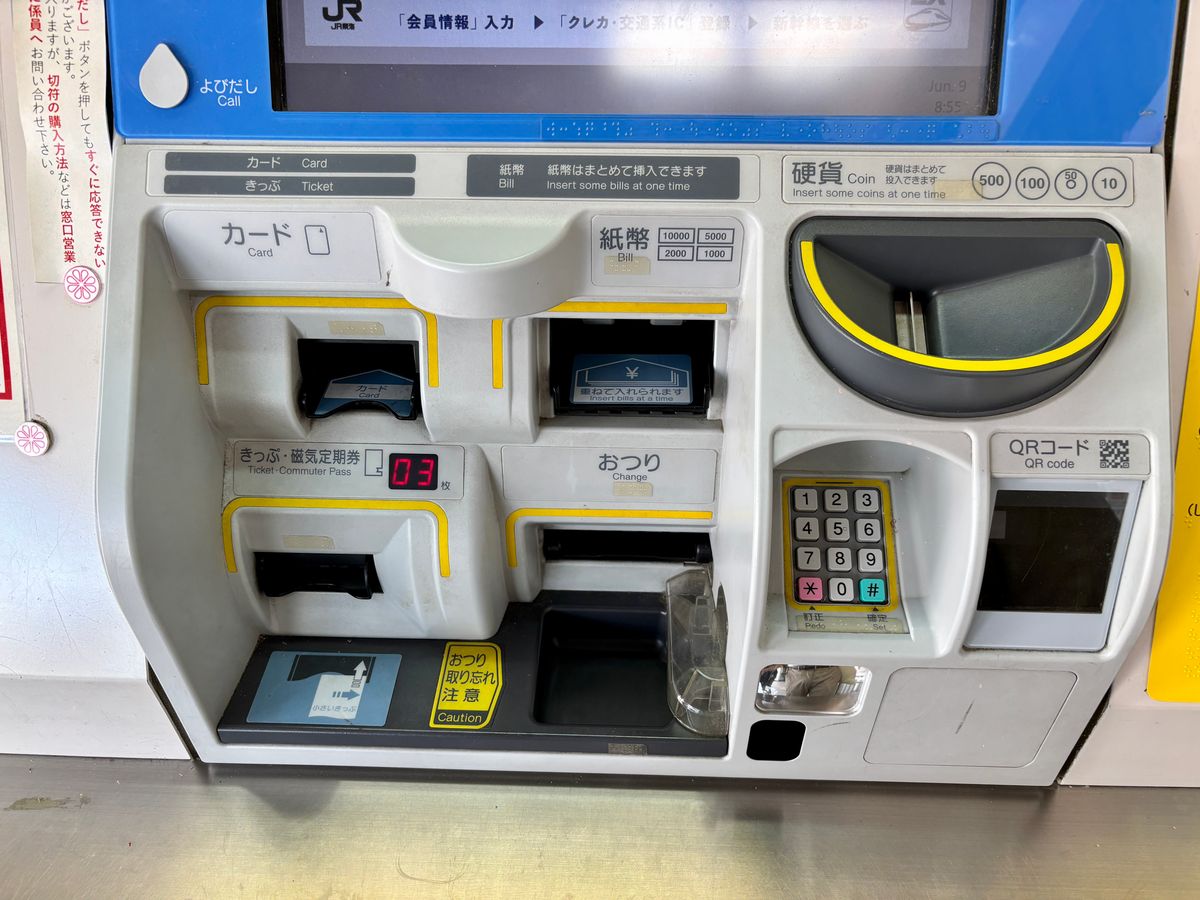
Step 8: Collect Your Tickets
Two tickets will come out:
Base Fare Ticket: Basic fare
Limited Express Ticket: Express surcharge and seat information
You need both tickets. Show them when passing through ticket gates and when the conductor checks tickets on the train. Keep them safe and don't lose them.

How to Board the Limited Express Shinano
Here's what you need to know about the train interior and important points to watch for.
Inside the Train
The Limited Express Shinano is a limited express train with large windows. Ordinary class carriages have a 2+2 layout with an aisle down the middle. Some seats have power points, but not all seats have them, so bring a portable battery if you plan to use your smartphone or tablet.
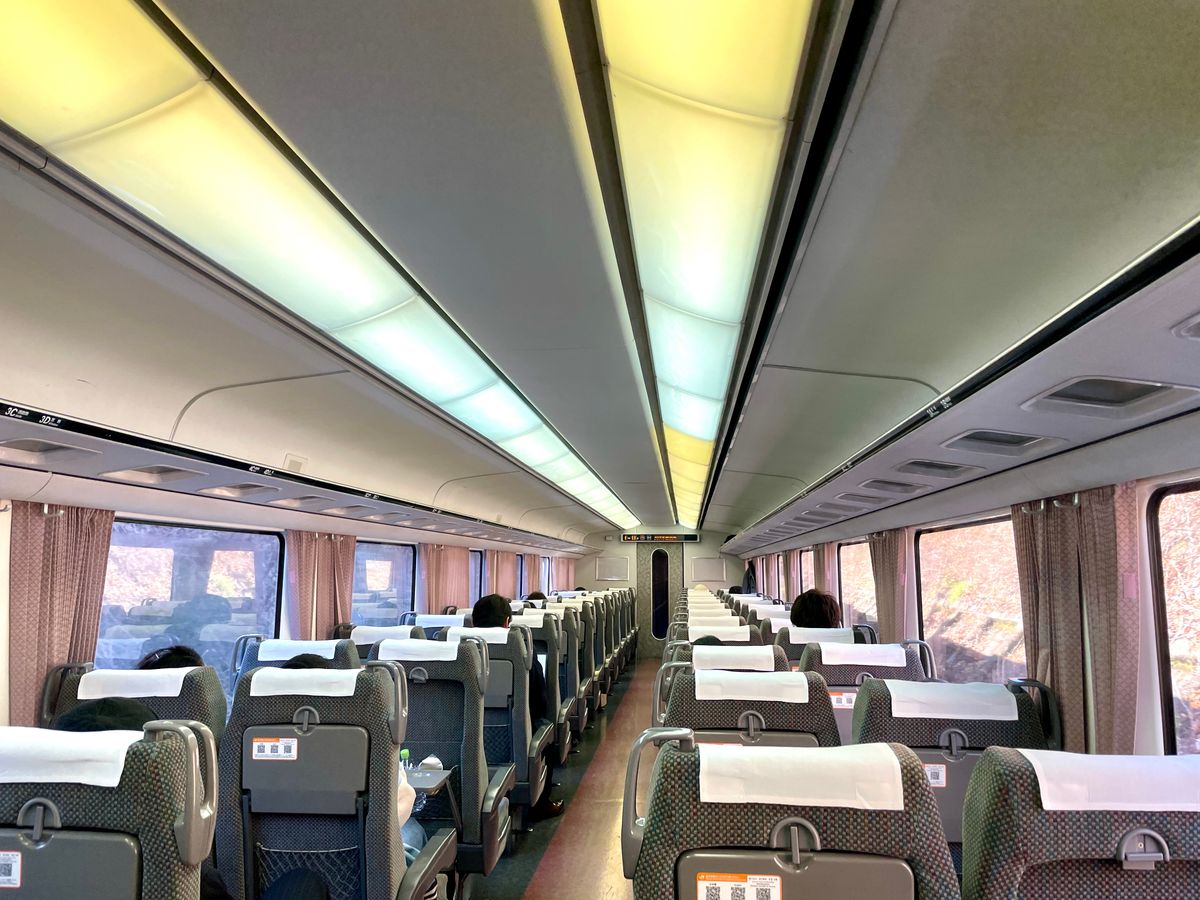
Seating Layout
Seats A and D are window seats, whilst B and C are aisle seats.
A & B seats: Left side (2 seats)
Aisle
C & D seats: Right side (2 seats)
For the Best Views
Nagano → Nagoya (southbound): Left side (C seat) recommended
Nagoya → Nagano (northbound): Right side (D seat) recommended
You'll see the Kiso River gorge and the Central Alps mountains.
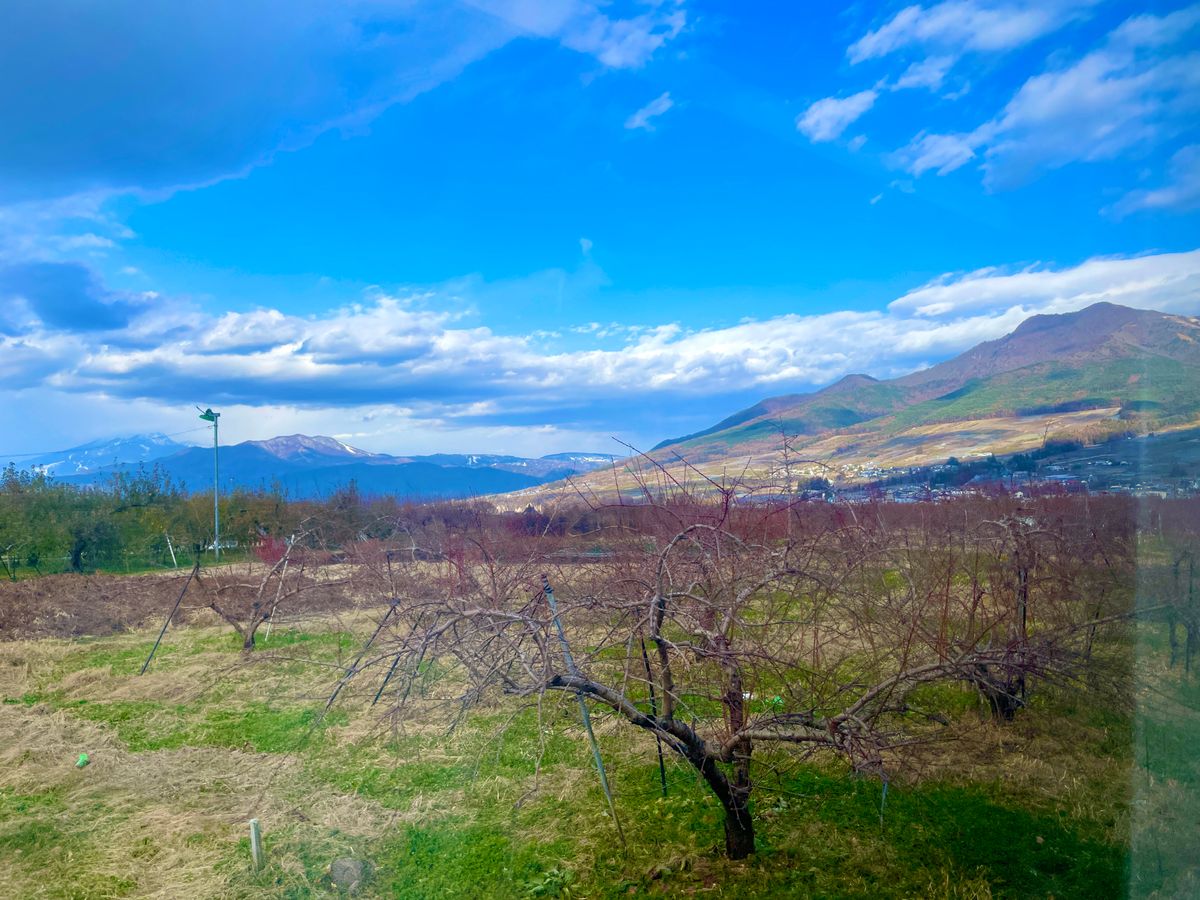
Restroom Available
There's a toilet in each carriage or every other carriage. They're located at the end of carriages - check the signs.
About Luggage Space
This is the most important thing to know about the Limited Express Shinano. Many foreign travellers struggle with this.
Overhead Rack Limitations
There are luggage racks above each seat, but they're smaller than on shinkansen trains. They can just about fit carry-on sized suitcases (within 55cm × 40cm × 25cm).
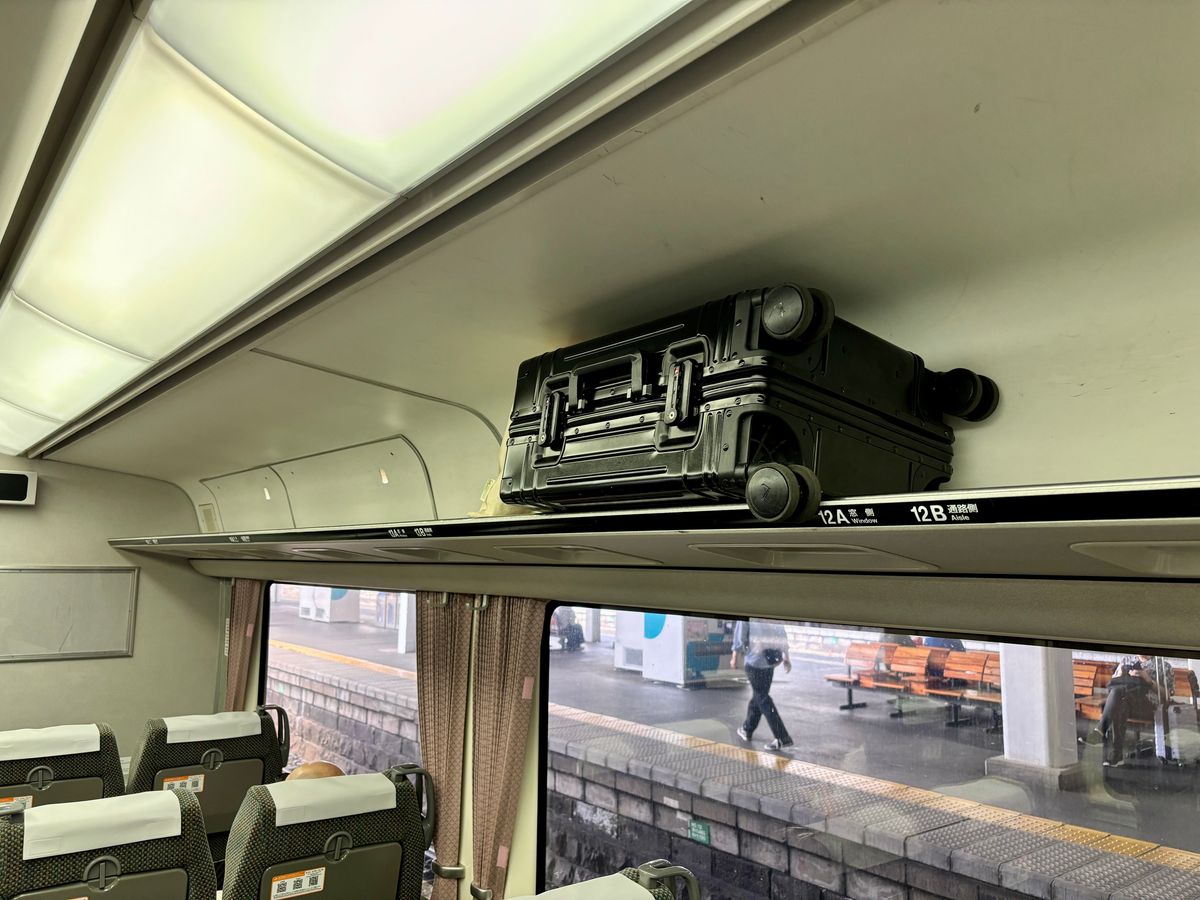
Luggage Space at the Back of Carriages
There's some space behind the last row of seats in each carriage. No reservation needed - it's first-come, first-served for everyone. However, it fills up quickly during busy times.
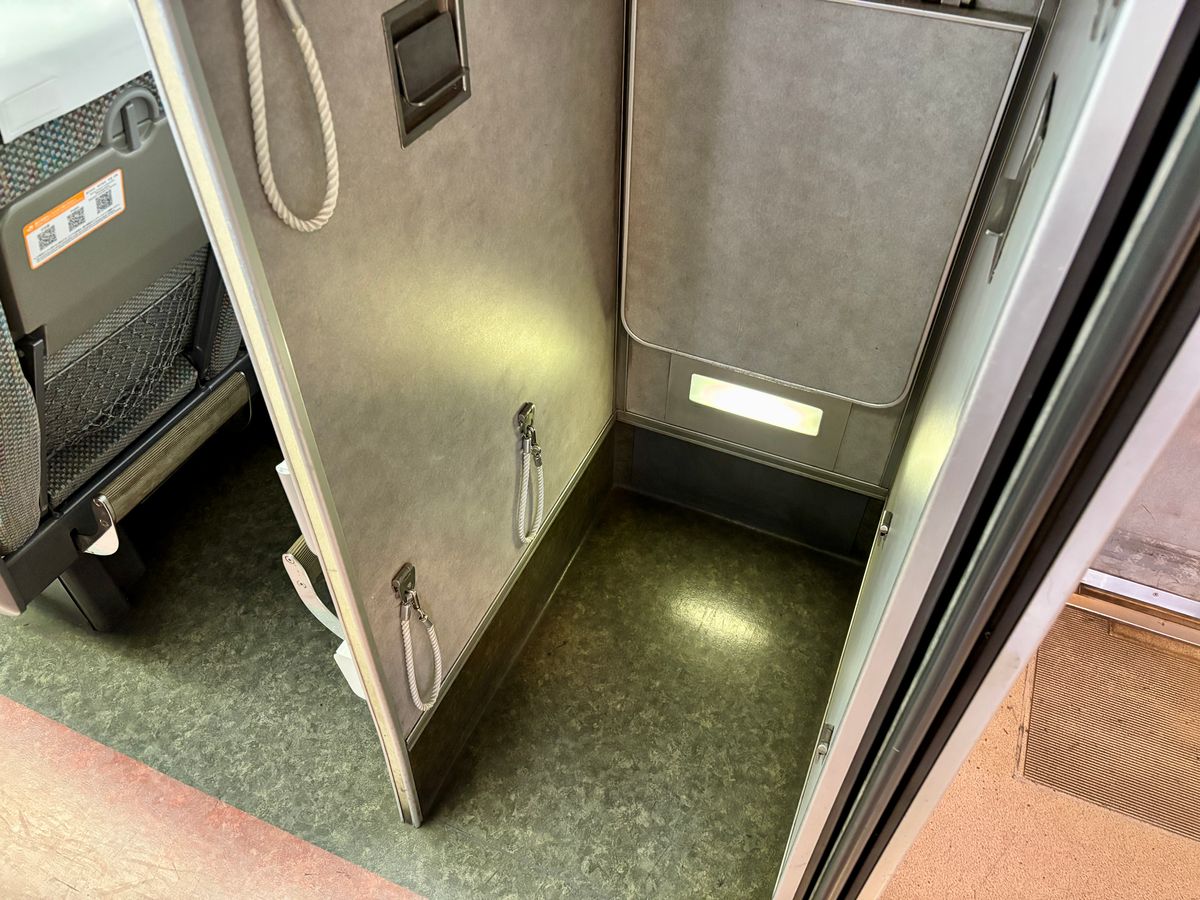
No Onboard Sales
Unfortunately, there's no food or drink service on the Limited Express Shinano. The onboard sales service ended in 2013. There are no vending machines either.
Travelling from Nagano to Kiso Valley
Important points if you're taking the Limited Express Shinano from Nagano to Kiso Valley.
Boarding at Nagano Station
The Limited Express Shinano departs from Platform 7 or 8 at Nagano Station. If you're changing from the Hokuriku Shinkansen, go down to the conventional line platforms by stairs or escalator. 10-15 minutes is enough time to change trains. There are ekiben (station lunch box) shops in the station building where you can buy local specialities like Shinshu soba bento and oyaki.
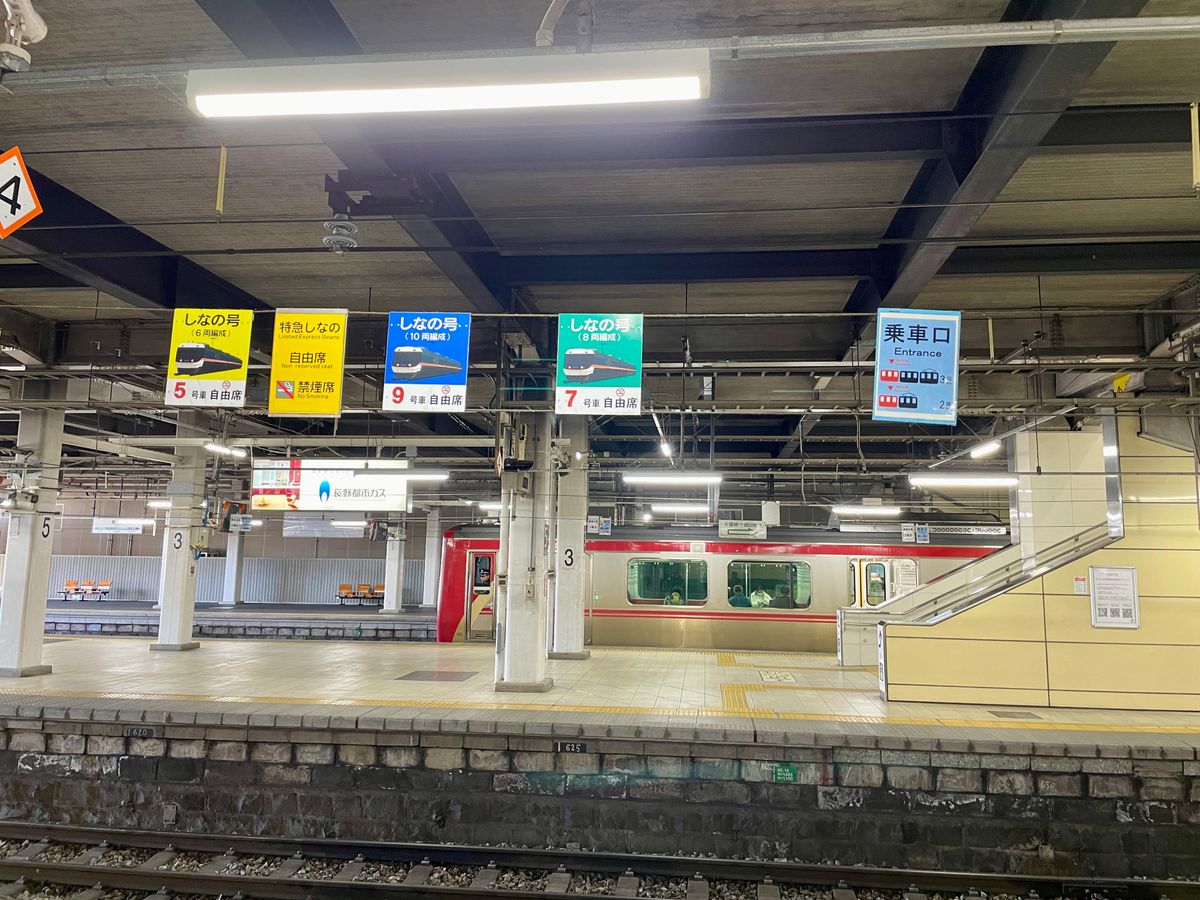
Points to Remember on the Train
The conductor will check tickets 10-15 minutes after departure. Have your tickets (or JR Pass + seat reservation) ready
Eating and drinking on the train is fine. Many Japanese passengers eat ekiben

